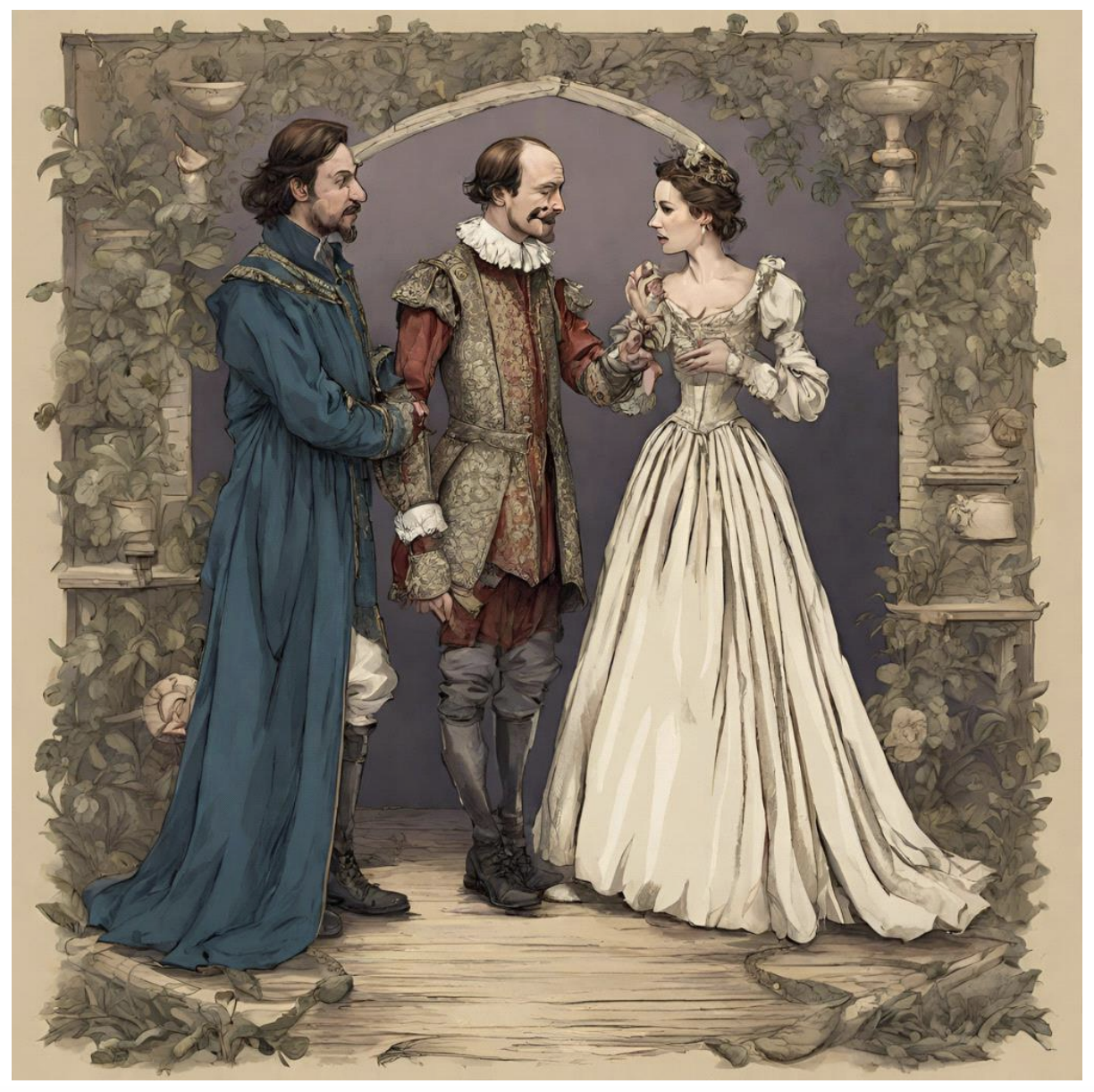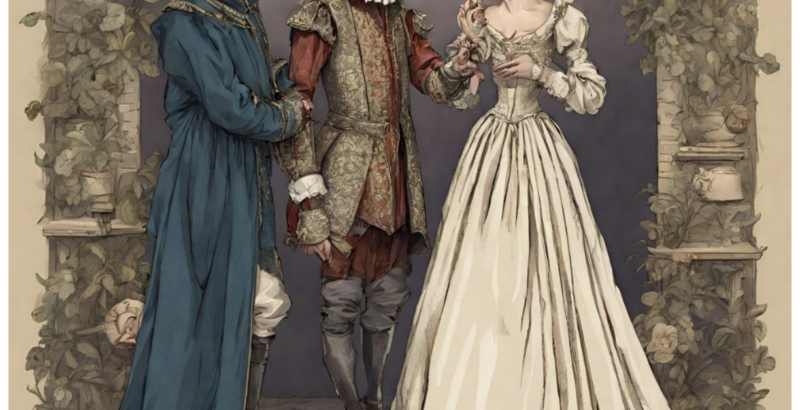Englisch LK: Is Shakespeare still relevant today?
- Posted by KLG
- Categories Allgemein Englisch Fachunterricht
- Comments 0
Liebe Lehrer, Eltern und Schüler des Franz Meyers Gymnasiums!
Wir, der Englisch LK der Q2, freuen uns, dass sie hier her gefunden haben. In unserem Leistungskurs haben wir Shakespears Drama „Much Ado About Nothing“, zu Deutsch „viel Lärm um Nichts“ gelesen und auf verschiedene Schwerpunkte hin analysiert, aber wie wichtig ist sein Werk heute eigentlich noch? Diese Frage „ist Shakespeare heute noch essenziell?“ haben wir uns im Unterricht gestellt und würden sie Ihnen gerne in unserem Blog beantworten.
A day in the life of an English A-class student reading “Much Ado About Nothing”
Waking up, falling back to sleep, skipping breakfast, running late, rushing to school in a hurry, talking with friends before torturing yourself through every class of the day and then – finally- your favourite class: English!
Taking a deep breath, calming down, opening our new book – confusion. Suddenly not understanding a single word, wondering what this whole thing is about, feeling disgusted by the presented gender roles of women as wives or whores. Why would I even want to read it? It ́s not like “Much Ado About Nothing” is still relevant today, is it?
Shakespeare and his language – enjoyable or not even understandable?
Initially, reading “Much Ado About Nothing” makes you question your ability to understand the English language. Abruptly none of the words make sense and you are dependent on the modern versions of the drama in order to understand what it’s about, so you can prepare for the next exam. Nevertheless, Shakespeare created and wrote his plays with the intention of creating a pleasant and enjoyable reading experience, using verses and rhyming in his famous sonnets and plays. Evidently through the language and use of words it’s hard to get into a proper reading flow for students nowadays.
Still influencing other directors and writers after over 400 years?
As a significant part of English literature, Shakespeare still characterises certain plots of modern movies or novels. The often presented “kill joy” is still an essential part of todays romance movies all students know and we can find the “kill joy” in movies like “Tangled” or “The wild chicks” (“Die wilden Hühner”).
Additionally there is the “will they, won’t they” relationship between two characters, who are somehow hating and loving each other throughout Shakespeare ́s whole drama. This exact relationship, where we all just guess if they even like each other is also to find in modern movies like “10 things I hate about you”. Eventually no one can say for sure, if Shakespeare was truly the only inspiration for modern authors, but as a matter of fact a lot aspects from 400 years ago are still shown in today’s literature and movies.
The Shakespearean “feminism”
Being bored by Hero, a girl from “Much Ado About Nothing” which is only interested into marrying some strange guy she met days or hours ago, her cousin Beatrice shows another side of womanhood. Beatrice is an eloquent young woman who speaks back on men and surely shows her own will and shares her thoughts about marriage and how she detests the vision of being owned by a husband. She is the opposite of the presented female stereotype and shows Shakespeare`s criticism of gender roles, which also still applies to the modern eastern society, which views women as mothers and housewives. Living in the 21st century and comparing Beatrice with a modern feminist, there’s not an actual difference and makes you realise how women were and sometimes still are seen as objects or a men’s property.
A students conclusion
The young woman is pretty much the only interesting and truly convincing reason to eventually conclude, that Shakespeare is somehow still relevant today, even though his structure and language is hard to understand, the relationships of certain characters are also presented in modern movies and books. Without the important impact of Beatrice and her morals and thoughts “Much Ado About Nothing” wouldn’t have a essential message nowadays. And still it’s very complicated and uncomfortable to read the play in is original form, that’s why most students prefer the modern English version, so they are capable to understand the storyline and Beatrice`s message.
Written by Vivien Besch, Mia Flasbeck, Mia Kristin Freudenberg and Carolin Matziol

Dieses Bild wurde mit der KI DALL-E 2 generiert.
Kurs: Englisch LK 2 Q2
Lehrkräfte: Savelsberg / Ducke
The Timeless Relevance of Shakespeare’s “Much Ado About Nothing“ in Education
Shakespeare was one of the most famous and admired writers and poets of all time nonetheless one must ask whether his play “Much Ado About Nothing“ is relevant enough for today’s society and education to be a part of the curriculum 400 years later?
Much Ado About Nothing is a romantic comedy adorned with love intrigues, weathered family situations and miscommunication. In my opinion, the piece is an effective way of bringing students closer to empathizing with certain everyday problems in the world and teaching them how to deal with them. Everyday themes like love intrigues, the kill-joy of Don John, a villain who destroys people’s relationships, gender roles, family and social circumstances and the inequality of rich and poor are all displayed in a comedic manner. It has been a long time since Shakespeare published this play yet it still displays how women are viewed as objects and are being treated like something lesser in eastern societies quite accurately.
Likewise, the remarkable writing style is a reason to continue teaching the piece as the structure of the drama still inspires modern authors and film directors, such as those from the series „The Big Bang Theory“ and „Friends“. As such you can clearly recognize the similarities which the “merry war“ lead by Lennard and Penny from the “Big Bang Theory“, shares with that between Benedick and Beatrice. Additionally well-known films like the comedy called “10 Things I hate About You“ are copiously influenced by Shakespeare’s writing technique.
On the one hand comprehending the seemingly old fashioned language might be demanding, on the other hand it goes to show there is a lot to learn from it and words like “cold-blooded“ or “bedazzled“ would not be utilized as frequently as they are if Shakespeare’s language was truly out of date.
All in all, “Much Ado About Nothing“ is an excellent source of inspiration for students while expressing criticism towards society which is still applicable to this day and thus it should remain in the curriculum.
Written by Kai Oberheid, Philipp Meis and Silas Hofmann











